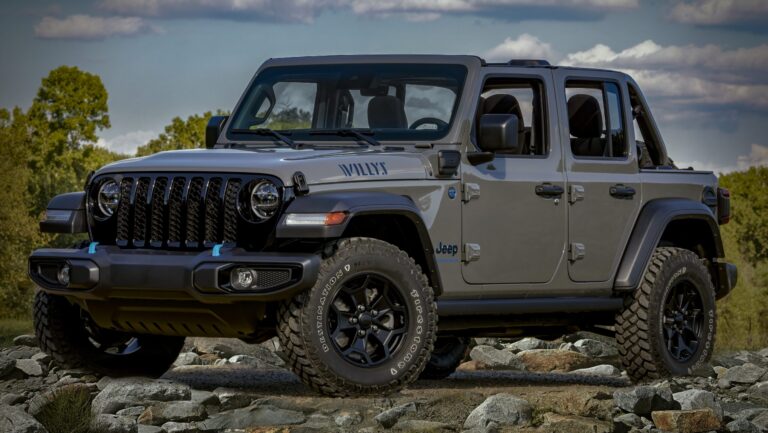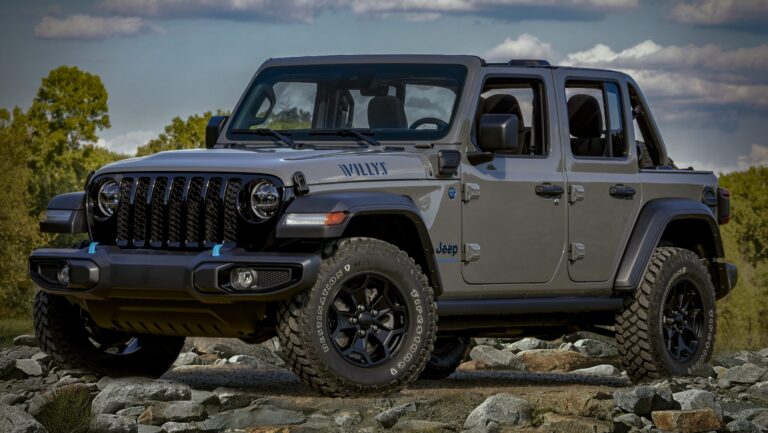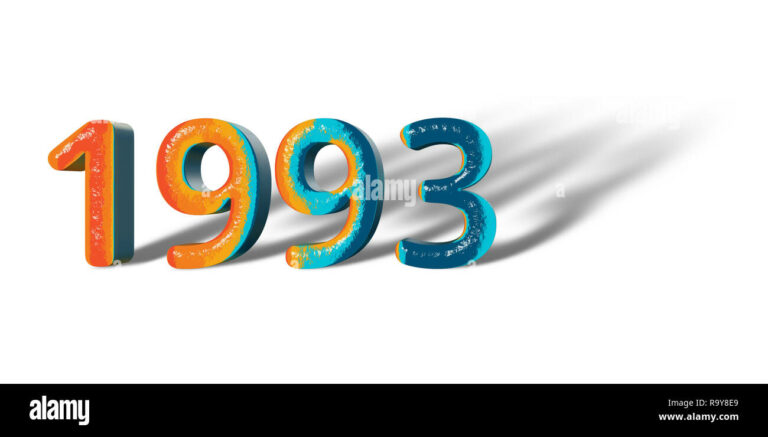2002 Jeep Grand Cherokee 4.7 Engine For Sale: Reigniting Your WJ’s Potential
2002 Jeep Grand Cherokee 4.7 Engine For Sale: Reigniting Your WJ’s Potential /jeeps.truckstrend.com
The 2002 Jeep Grand Cherokee (WJ generation) holds a special place in the hearts of many automotive enthusiasts and off-roaders. Known for its robust capability, comfortable interior, and distinctive styling, the WJ was often powered by one of two formidable engines: the inline-six 4.0L or the more powerful 4.7L V8. For owners of a 2002 Grand Cherokee with the 4.7L PowerTech V8, finding a replacement engine for sale can be a critical step in keeping their beloved SUV on the road. Whether facing a catastrophic engine failure, planning a performance upgrade, or embarking on a full restoration, the search for a reliable 2002 Jeep Grand Cherokee 4.7 engine for sale is a common and important endeavor.
This comprehensive guide will delve into everything you need to know about purchasing a replacement 4.7L V8 for your 2002 Jeep Grand Cherokee, covering its characteristics, where to find one, what to consider, and how to ensure a successful swap.
2002 Jeep Grand Cherokee 4.7 Engine For Sale: Reigniting Your WJ’s Potential
Understanding the 2002 Jeep Grand Cherokee 4.7L V8 Engine
The 4.7-liter PowerTech V8 engine, introduced in 1999, was a significant leap forward for Jeep, offering a more modern and powerful alternative to the venerable 5.2L and 5.9L Magnum V8s it replaced. In the 2002 Grand Cherokee, this Single Overhead Cam (SOHC) engine typically produced around 235 horsepower and 295 lb-ft of torque, providing ample power for daily driving, towing, and off-road excursions. Its aluminum block and heads contributed to a lighter overall package compared to its predecessors, improving handling and fuel efficiency.
While generally a strong performer, the 4.7L V8 in early WJ models, including the 2002, had a few well-documented quirks:
- Dropped Valve Seats: A notorious issue, particularly in early production runs (1999-2001, though some 2002s were affected), where the valve seats could become loose and drop into the cylinder, causing catastrophic engine damage.
- Oil Sludge: Less common, but poor maintenance or extended oil change intervals could lead to oil sludge buildup, restricting oil passages and causing lubrication issues.
- Cooling System Vulnerabilities: Overheating due to radiator issues, water pump failure, or clogged coolant passages could stress the engine, leading to head gasket failure or cylinder damage.

Despite these potential pitfalls, a well-maintained 4.7L V8 is a robust and capable engine, making a replacement a worthwhile investment for many WJ owners who appreciate its performance and the overall utility of their vehicle.
Why Buy a Replacement 4.7L Engine? Common Scenarios
The decision to purchase a replacement engine is usually driven by specific circumstances:
- Catastrophic Engine Failure: This is the most common reason. A thrown rod, seized engine, cracked block, or severe head damage often makes repair uneconomical compared to a full engine replacement.
- High Mileage and Wear: An engine with extremely high mileage might still be running but could be exhibiting signs of significant wear, such as excessive oil consumption, low compression, or constant misfires. Proactively replacing it can save headaches down the line.
- Performance Upgrade: While less common for a like-for-like swap, some enthusiasts might seek a slightly newer, lower-mileage 4.7L HO (High Output) engine from a later model year (2002-2004) for a marginal power bump (265 hp), though this requires careful consideration of compatibility and PCM tuning.
- Restoration Project: For those restoring a classic 2002 Grand Cherokee, a fresh engine is often a crucial component to ensure reliability and longevity.

Types of 4.7L Engines Available for Sale

When searching for a 2002 Jeep Grand Cherokee 4.7 engine, you’ll encounter several categories, each with its own pros and cons:
- Used/Salvage Engines: These are pulled directly from donor vehicles, often from junkyards or wrecked cars.
- Pros: Cheapest option.
- Cons: Unknown history, mileage, and internal condition. High risk of hidden issues. No warranty or very limited warranty.
- Rebuilt Engines: These engines have been disassembled, inspected, and had worn components replaced (e.g., bearings, rings, gaskets).
- Pros: Better condition than used, often come with a limited warranty.
- Cons: Quality varies significantly depending on the rebuilder. May not address all potential issues (e.g., valve seats if not fully machined).
- Remanufactured Engines: The gold standard for replacement engines. These are fully disassembled, thoroughly cleaned, inspected, machined to factory specifications, and have all wear items replaced with new or re-machined parts. They undergo rigorous testing.
- Pros: Closest to a new engine, often come with comprehensive warranties (1-3 years, unlimited mileage). Highest reliability.
- Cons: Most expensive option.
- New Crate Engines: Extremely rare for a 2002 model year, and if available, prohibitively expensive. More common for current production vehicles.
Beyond the type of rebuild, engines are also categorized by their completeness:
- Short Block: The engine block assembly, including the crankshaft, connecting rods, and pistons. No cylinder heads, camshafts, or valvetrain. Requires significant assembly.
- Long Block: The short block plus cylinder heads, camshafts, and valvetrain. Typically includes the oil pan and valve covers. Most common and practical option for a replacement.
- Complete Engine: A long block with intake manifold, exhaust manifolds, throttle body, fuel injectors, and often accessories like the alternator, power steering pump, and A/C compressor. Most expensive, but can save time on accessory swaps.
Where to Find a 2002 Jeep Grand Cherokee 4.7L Engine
Finding the right engine requires casting a wide net:
- Specialized Engine Suppliers/Remanufacturers: Companies like Jasper Engines & Transmissions, Powertrain Products, or local engine rebuilders often specialize in remanufactured engines and offer warranties. This is often the safest bet.
- Auto Salvage Yards (Junkyards): Excellent for used engines. You can often inspect the engine in person, and some yards offer limited warranties. Websites like Car-Part.com aggregate inventory from many yards.
- Online Marketplaces: eBay, Craigslist, and Facebook Marketplace can yield individual sellers or smaller shops. Exercise extreme caution here due to potential scams and lack of recourse.
- Local Mechanics/Shops: Many shops have connections to engine suppliers or may even have a reputable rebuilder they work with.
- Jeep Forums and Enthusiast Groups: Online communities can be a great source for leads, advice, and sometimes even engines from fellow enthusiasts.
Critical Considerations Before Purchase
A successful engine swap starts with a smart purchase. Here’s what to keep in mind:
- Mileage and Condition (for Used Engines): Lower mileage is generally better, but condition trumps all. Ask for videos of the engine running (if still in the vehicle), compression test results, or oil analysis reports. Look for signs of neglect, such as heavy sludge under the oil cap or burnt oil smell.
- Source Reliability and Reputation: Purchase from reputable sellers with a track record. Check reviews, ask for references, and ensure they have a physical location if buying locally.
- Warranty: This is paramount, especially for rebuilt or remanufactured engines. Understand the terms: duration, coverage (parts only, or parts and labor?), and what voids it. A strong warranty offers peace of mind.
- Compatibility: While a 2002 4.7L engine is fairly standard, ensure it’s the correct year and variant. Minor sensor differences or PCM compatibility issues can arise with engines from significantly different years.
- Included Accessories: Determine what comes with the engine (long block, complete engine). This impacts overall cost, as you may need to transfer or purchase additional components.
- Shipping Costs: Engines are heavy. Factor in significant shipping costs if buying from a distant seller. Get a firm quote before committing.
- Core Charge: Many sellers of rebuilt or remanufactured engines require a "core" return – your old engine. A core charge is a deposit you pay that is refunded when you return your old engine. Ensure you understand this charge and the return process.
Tips for Inspection and Verification
If you have the opportunity to inspect an engine in person:
- Visual Inspection: Look for cracks in the block or heads, signs of impact damage, excessive rust, or indications of fluid leaks.
- Oil Pan: If accessible, remove the oil pan to check for metal shavings, which indicate severe internal wear.
- Rotate Crankshaft: Use a wrench on the crankshaft pulley bolt (if accessible) to turn the engine manually. It should turn smoothly without binding.
- Spark Plugs: If possible, remove a few spark plugs. Check their condition for oil fouling or unusual deposits, which can hint at internal issues.
- Documentation: Ask for any available service records or a VIN from the donor vehicle (for used engines) to run a history check.
Installation and Post-Purchase Considerations
Once you’ve purchased your engine, the next step is installation and ensuring its longevity:
- Professional vs. DIY Installation: An engine swap is a complex job. Unless you have significant automotive experience, specialized tools, and a proper workspace, professional installation by a qualified mechanic is highly recommended.
- Associated Parts to Replace: This is crucial. Even with a new or remanufactured engine, you must replace certain ancillary components to ensure reliability and prevent premature failure:
- Water pump and thermostat
- All hoses (radiator, heater, vacuum)
- Belts (serpentine, tensioners)
- Spark plugs and coil packs
- Motor mounts and transmission mount
- Oxygen sensors
- New fluids (engine oil, coolant, power steering fluid)
- Consider replacing the radiator and coolant reservoir, especially if the old engine overheated.
- Break-in Procedures: Remanufactured and rebuilt engines require a specific break-in period. Follow the manufacturer’s instructions meticulously regarding initial oil changes, varied RPMs, and avoiding heavy loads.
- Long-Term Maintenance: To prevent future issues, adhere strictly to the manufacturer’s recommended maintenance schedule, especially for oil changes (using the correct oil viscosity) and cooling system flushes.
Potential Challenges and Solutions
- Challenge: Receiving a "Lemon" Engine: Despite precautions, a faulty engine can slip through.
- Solution: A strong warranty from a reputable seller is your best defense. Document everything, and be prepared to follow the warranty claims process.
- Challenge: High Shipping Costs: The weight of an engine makes shipping expensive.
- Solution: Prioritize local sellers if possible to allow for pickup. Negotiate shipping costs with the seller.
- Challenge: Unexpected Installation Costs: Ancillary parts and labor can add up quickly.
- Solution: Budget generously for all associated parts and professional labor. Get detailed quotes from mechanics before starting the project.
- Challenge: Core Return Issues: Your old engine might not be accepted as a core due to severe damage or missing parts.
- Solution: Clarify core return requirements before purchase. Take photos of your old engine if possible.
2002 Jeep Grand Cherokee 4.7 Engine Estimated Price Table
Please note: These prices are estimates and can vary significantly based on seller, mileage, condition, included accessories, and market demand. Always get a specific quote.
| Engine Type/Condition | Estimated Price Range (USD) | Typical Mileage (if applicable) | Warranty (Typical) | Notes |
|---|---|---|---|---|
| Used/Salvage | $800 – $2,000 | 80,000 – 150,000+ | 30-90 Days | Highest risk, often sold "as-is." May require significant cleaning/inspection. No core charge. |
| Rebuilt | $2,200 – $3,500 | N/A (rebuilt) | 6 Months – 1 Year | Quality varies greatly. Confirm what components are new/replaced. Core charge often applies. |
| Remanufactured | $3,500 – $5,500+ | N/A (like new) | 1-3 Years | Most reliable and comprehensive. Often includes new pistons, bearings, valve seats, etc. Core charge applies. |
| Long Block | (Price varies based on condition, typically lower than complete) | – | – | Less complete than "complete," requires transferring more parts from old engine. |
| Complete Engine | (Price varies based on condition, typically higher than long block) | – | – | Includes intake, exhaust, sensors, often accessories. Most convenient for swap. |
- Additional Costs to Budget For: Shipping ($200-$600+), Core Charge (if applicable, typically $300-$800, refunded upon return), Installation Labor ($1,000-$2,500+), Ancillary Parts ($500-$1,500+).
Frequently Asked Questions (FAQ)
Q1: What’s the average lifespan of a 2002 4.7L V8 engine?
A1: With proper maintenance, a 4.7L V8 can last 150,000 to 250,000 miles or more. However, early models are prone to valve seat issues, and neglect can significantly shorten its life.
Q2: Can I upgrade my 4.0L Grand Cherokee to a 4.7L V8?
A2: Yes, it’s technically possible, but it’s a very complex and expensive swap. It requires not only the engine but also the transmission, engine computer (PCM), wiring harness, radiator, and potentially other components. It’s generally not recommended for the faint of heart or those on a budget.
Q3: What’s the difference between a long block and a short block?
A3: A short block includes the engine block, crankshaft, connecting rods, and pistons. A long block includes everything in a short block, plus the cylinder heads, camshafts, and valvetrain. A long block is a more complete and common replacement option.
Q4: What should I replace when installing a new engine?
A4: At a minimum, replace the water pump, thermostat, all hoses, belts, spark plugs, motor mounts, and all fluids. Consider replacing the radiator and coolant reservoir, especially if the old engine failed due to overheating. Sensors (O2, crank, cam) are also good candidates for replacement.
Q5: Are there any specific issues with the 2002 4.7L engine I should be aware of?
A5: Yes, the primary concern for 2002 4.7L engines is the potential for dropped valve seats. This issue was more prevalent in 1999-2001 models but could still affect early 2002 production. Look for engines that have had this issue addressed or are from later production runs (if compatible). Also, ensure diligent oil changes to prevent oil sludge.
Q6: How much does professional engine installation typically cost?
A6: Installation labor can range from $1,000 to $2,500 or more, depending on the shop’s labor rates, the complexity of the specific vehicle, and whether additional work (like replacing other worn parts) is done. Always get a detailed quote.
Conclusion: Reigniting Your WJ’s Potential
The 2002 Jeep Grand Cherokee 4.7L V8 is a formidable engine that provides excellent power and capability for the WJ platform. While a failed engine can be disheartening, finding a suitable replacement offers a fantastic opportunity to breathe new life into your cherished SUV. By understanding the different types of engines available, knowing where to look, and performing thorough due diligence, you can make an informed purchase that ensures years of reliable performance. Whether you choose a dependable remanufactured unit or a carefully vetted used engine, the investment in a replacement 4.7L V8 can get your Grand Cherokee back on the road, ready for its next adventure.






